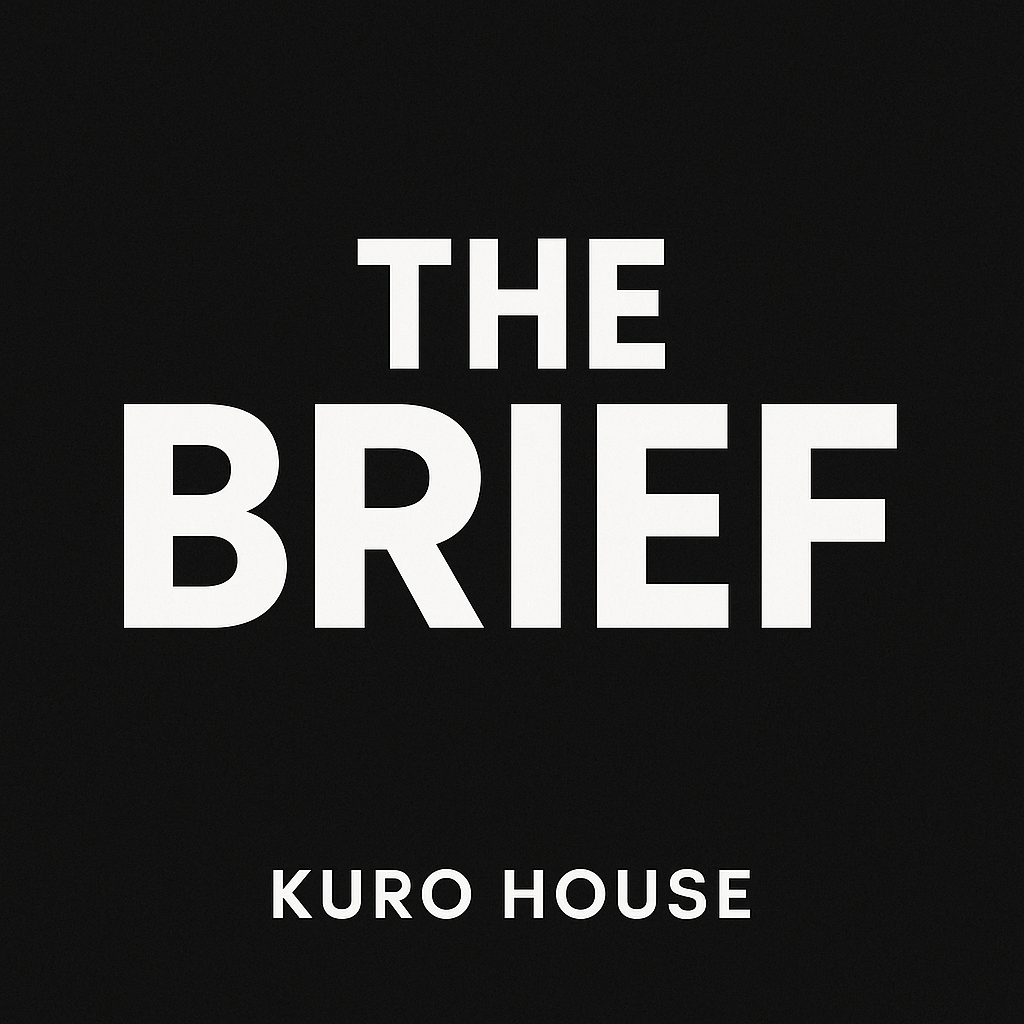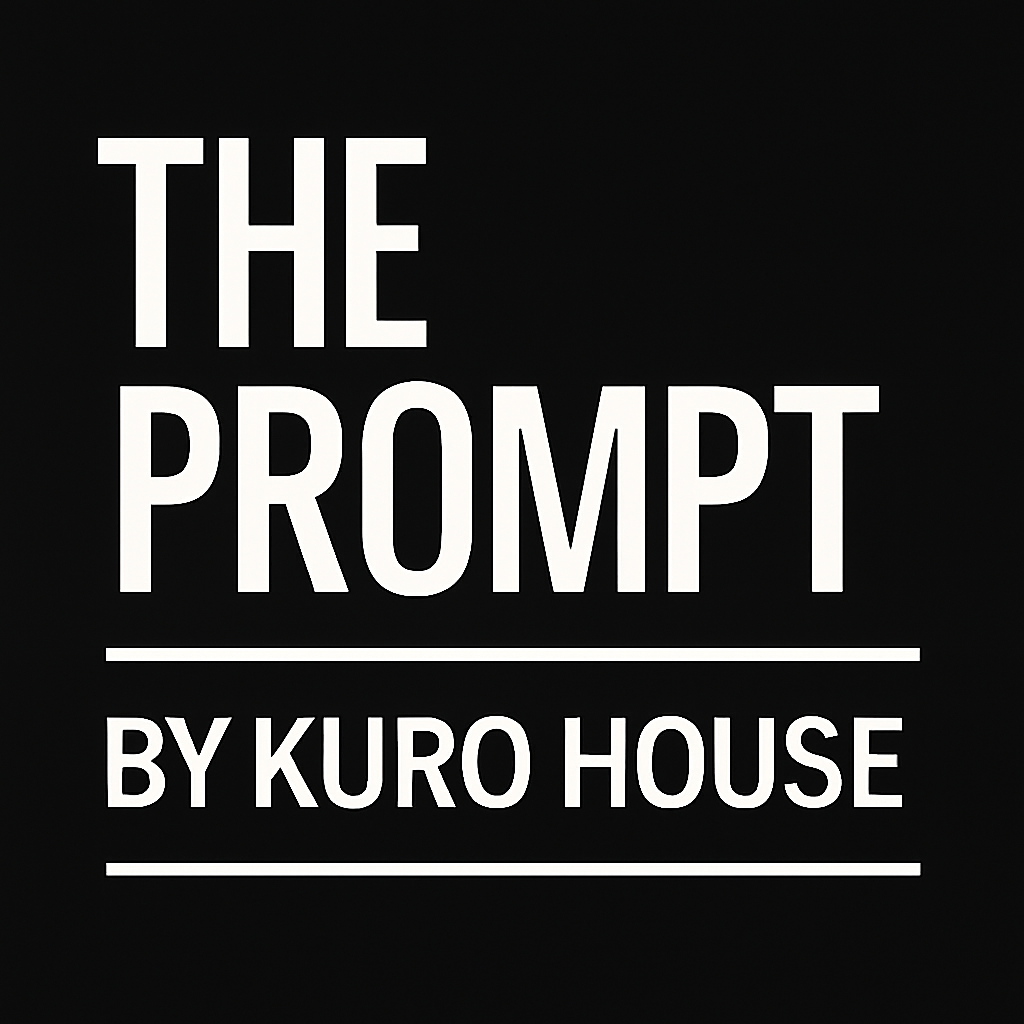Listen To The Show
Transcript
Welcome to The Brief by Kuro House, your daily marketing update where we cut through the noise and bring you the most insightful stories shaping the industry right now. Today, we’re diving into the latest from Adweek and Digiday, covering everything from AI’s evolving role in advertising to major moves in the podcast, publishing, and creator worlds. Let’s get right into it.
First up, Perplexity, the AI-powered search engine, is hitting pause on new advertising deals as it reconsiders how ads fit into its user experience. According to a report from Adweek, Jessica Chan, Perplexity’s head of publisher partnerships, announced at Advertising Week in New York that the company isn’t taking on any new advertisers for now, and that ads aren’t even part of the roadmap for its AI browser, Comet. This marks a significant shift from Perplexity’s earlier ambitions—just last year, they were onboarding big-name publishers like The Independent and LA Times for their Publisher Program, which pays out when content appears next to ads. Their ad offering, which included sponsorships from brands like Indeed and Whole Foods Market, let advertisers sponsor follow-up questions in search results. But Chan emphasized that they’re scaling “thoughtfully and methodically,” not flooding the platform with ads. The reason? Advertisers are shifting away from performance-driven search towards top-of-funnel brand awareness, and Perplexity may explore this space in the future. Financially, ads are a tiny fraction of Perplexity’s business—just $20,000 from ads out of $34 million in total revenue last year. Publishers and ad buyers are also struggling with a lack of performance metrics and meaningful income from the platform. Meanwhile, Perplexity is focusing on building out its ecosystem, recently making its Comet browser free for all users and highlighting partnerships with trusted publishers like CNN, The Washington Post, and Le Monde. The big question: Can Perplexity find a sustainable, publisher-friendly ad model, or will it pivot to something entirely new?
Next, a major creator and sports crossover: MrBeast, the world’s most popular YouTuber, is teaming up with Spanish-language giant TelevisaUnivision for a new initiative called the “Road to Beast Cup.” Announced during an ADWEEK House panel, this project is set to complement the upcoming 2026 FIFA World Cup by bringing together global creators and soccer legends for a 1v1 Creator Cup at Mexico City’s Estadio Azteca. The stakes are high—the winners will secure major contributions to build soccer fields in their home countries, and the event will be broadcast across MrBeast’s social channels and TelevisaUnivision’s platforms. There’s also a strong philanthropic angle: MrBeast, TelevisaUnivision, and Beast Philanthropy are partnering to build a new school and soccer field near Mexico City, as well as refurbish ten more fields for kids across the country. Brands can get involved too, with opportunities for deep integration into these cultural moments. As Jeff Housenbold, CEO of Beast Industries, put it, “Soccer is the world’s most popular sport, and Jimmy is the world’s most popular creator—making TelevisaUnivision the perfect partner to create lasting change.” This is more than just branded content; it’s a global, creator-led movement with real-world impact.
Switching gears to the publishing world, the Ozone Project—a publisher alliance originally founded by The Guardian, News UK, The Telegraph, and Reach—is making a big push in the U.S. market. As reported by Digiday, Ozone has signed major U.S. publishers like The Wall Street Journal, New York Post, BBC (US), and CNN. Their platform has evolved from simply aggregating ad inventory to mapping audience behavior across publishers, offering advertisers a stitched-together view of reader habits. This data-driven approach has driven over £400 million ($532 million) in incremental spend back into UK publishing and is now scaling stateside, with plans to grow their U.S. team from 10 to 50. Unlike previous publisher alliances that fizzled due to lack of alignment or tech challenges, Ozone is sticking by offering a technical layer and first-party data map that publishers can’t match on their own. There’s even talk of Ozone potentially negotiating with large language models (LLMs) for content licensing on behalf of publishers—a united front against Big Tech’s dominance. At their recent CTRL event in New York, publishers discussed the need for collaboration, diversification of revenue, and a more unified message to advertisers. The consensus: in the AI era, collective action could be publishers’ best bet for a stronger digital future.
Now, let’s talk about the evolving relationship between AI and the podcast industry. According to Digiday, podcasting prides itself on intimacy and personal connection between hosts and listeners, but AI is starting to reshape both content creation and advertising. AI tools are now being used to efficiently translate podcasts into multiple languages, edit out mistakes or filler words, and even improve audience targeting for advertisers. For example, Sonoro Media translated its Spanish-language horror podcast “Relatos de la Noche” into English using AI that replicates the host’s voice with a Spanish accent, and they were transparent about the use of AI in the show notes. However, there are concerns about transparency, ethics, and regulatory compliance. Industry leaders like Sheryl Goldstein from the IAB say that as long as AI is used as an editing tool, disclosure isn’t necessary, but when it fundamentally changes content or ads, transparency becomes crucial. There’s currently no industry standard for disclosing AI use in podcasts, but the consensus is moving toward at least noting it in the show notes. Meanwhile, podcasters are also looking to protect their IP from being scraped by AI tools, though it’s harder to steal and manipulate audio than text. Still, as AI gets more sophisticated, the industry is bracing for new challenges in balancing innovation with authenticity.
Finally, some big changes are underway at NBC News following the split from MSNBC and CNBC. Adweek reports that Cesar Conde, chairman of NBCUniversal News Group, has outlined a new strategic direction focusing on content, innovation, and culture. NBC News is planning to launch a new subscription product later this year and expand its Sports Hub, supported by a fresh marketing campaign that aims to reinforce its reputation for rigorous, fact-based reporting accessible across all platforms. There’s also a structural shift: NBC News is moving from a program-centric to a story-centric approach, with editorial president Rebecca Blumenstein taking on an expanded role. Reporting to her will be leaders overseeing Nightly News, NBC News Now, Specials, creative production, standards, marketing, and Meet the Press. Blumenstein, who joined from The New York Times in 2023, is now at the helm of a more unified, agile news operation. The hope is that these changes will help NBC News stay competitive and relevant in a rapidly changing media landscape.
That wraps up today’s Brief. From AI’s delicate dance with media monetization to creator-led philanthropy and the power of publisher alliances, the marketing landscape is in a state of constant reinvention. As always, we’ll be here to track the shifts, spotlight the innovators, and help you stay one step ahead. Thanks for listening to The Brief by Kuro House—see you tomorrow.

